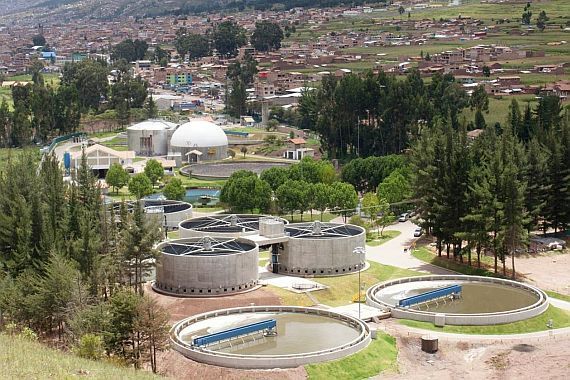World Water Day: Linking Water and Climate

Carbon-neutral, resilient water systems are possible with a cross-sectoral approach that links water, energy and food security.
For the past five years, the World Economic Forum ranked water as one of the top global risks to industry and society. This risk is strongly linked to the failure or success of climate change adaptation and mitigation efforts focused on water. Climate change is water change and, across the globe, we are facing a future where water demand is expected to grow by 55% until 2050, while water availability is estimated to drop by 40% over the same period.
The size and scale of the water challenges facing the world are unprecedented. While the water sector has to manage the impacts of climate change, it also contributes to climate change through carbon emissions: water supply use up to 8 % of the global energy generation. Wastewater also contributes significantly towards nitrous oxides and methane emissions, which have much larger multiplier effects on global warming.

Fortunately, there are many promising solutions to decarbonize the water sector and mitigate climate change. The Water and Wastewater Companies for Climate Mitigation (WaCCliM) project is working with water and wastewater utilities in four countries (Jordan, Mexico, Peru and Thailand), demonstrating that the water sector can considerably reduce its greenhouse gas emissions. In the short-term, improving operational and energy efficiency can reduce energy consumption by up to 40%; in the long-term, upgrading and reforming water and wastewater systems can make utilities energy and carbon-neutral.
One of the biggest opportunities for urban utilities to achieve carbon-neutral, climate-resilient water systems comes from untreated wastewater. Globally, 80% of all wastewater is released into nature untreated, and untreated sewage represents three times the greenhouse gas emissions of conventional wastewater treatments. A massive expansion of wastewater treatment, combined with energy-saving and renewable energy producing measures, is critical to putting utilities on the path towards carbon neutrality.

In Mexico, the WaCCliM pilot utilities in San Francisco del Rincon, Guanajuato, are showing how water and wastewater utilities can become leaders for a climate-resilient, low-carbon society. Following the WaCCliM roadmap, they have introduced climate-friendly measures that have allowed them to reduce their energy consumption by 20 percent, equivalent to 360 MWh per year, has lowered operational costs and improved productivity. The utility has increased its wastewater treatment coverage by 60 % in 2016 alone. The immediate impact of this is a 40% reduction in greenhouse gas emissions, equivalent to 2,200 tons of carbon dioxide per year. Within one year additional energy was generated from wastewater equivalent to the power for 24 homes. This small step highlights the future role of wastewater utilities in powering the circular economy.

WaCCliM utilities in other countries are also pioneering solutions. In Peru, more than 4500 tons of carbon emissions per year were avoided at the pilot utility in Cusco (SEDACUSCO) through improved sludge management resulting in increased biogas production that can be sued for generation of renewable energy. This highlights how wastewater treatment plants can be transformed into resource recovery and energy production plants.

Reducing greenhouse gas emissions from urban water services is a significant contribution to national carbon targets under the Paris Climate Agreement. WaCCliM shows that this could be up to 20 percent of Nationally Determined Contributions. All of these improvements position WaCCliM utilities not only to be able to unlock climate finance, but to be ahead of regulatory changes and pro-actively prepare for future greenhouse gas and environmental regulatory compliance.
A carbon-neutral future requires all sectors to innovate and provide solutions to climate challenges. The water sector can seize the opportunity to become more resilient and efficient, championing the transition towards energy and carbon neutrality as well as lowering energy costs.
The link has been copied to the clipboard
Contact
IKI Office
Zukunft – Umwelt – Gesellschaft (ZUG) gGmbH
Stresemannstraße 69-71
10963 Berlin














